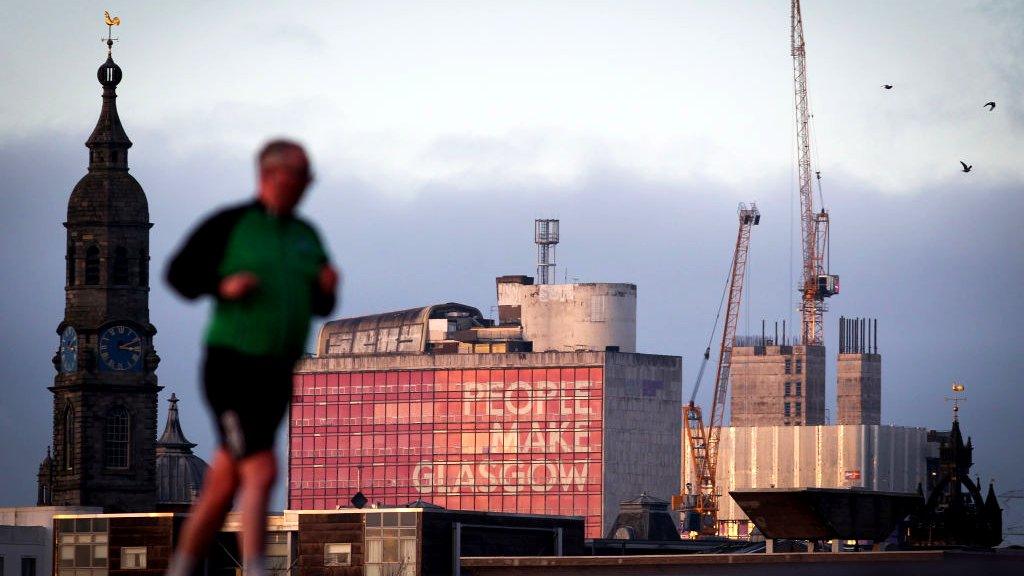Covid in Scotland: Rules may not be eased in some areas next week
- Published
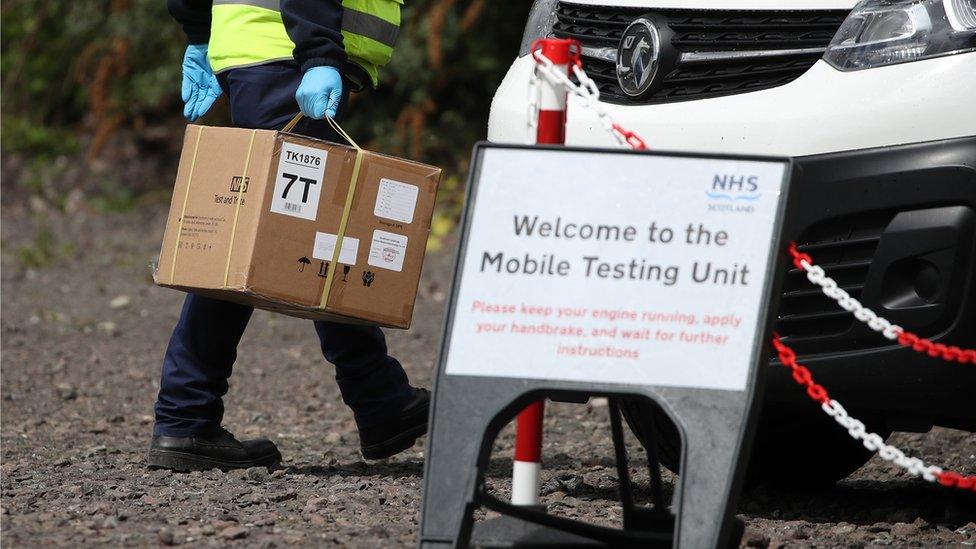
Some areas where cases are still rising may not move to level one next week, Mr Yousaf cautioned
Covid restrictions may not be relaxed further next week in parts of Scotland where infections are rising, the health secretary has warned.
Under the lockdown easing roadmap, areas in level two are scheduled to move down to level one on 7 June.
But Humza Yousaf said this may not be possible for areas where Covid cases are giving "cause for concern".
He said this could affect locations outside Glasgow, which is the only part of Scotland still in level three.
The rest of mainland Scotland is in level two, while some islands have already moved down to level one.
First Minister Nicola Sturgeon has said she is hopeful Glasgow can move down a level at the end of this week, which would allow people to meet inside homes and gardens, and alcohol to be served inside bars and restaurants.
She is due to announce on Tuesday whether the rest of Scotland can move down to level one on 7 June, a step which would allow greater numbers of people to socialise and venues such as soft play centres to reopen.
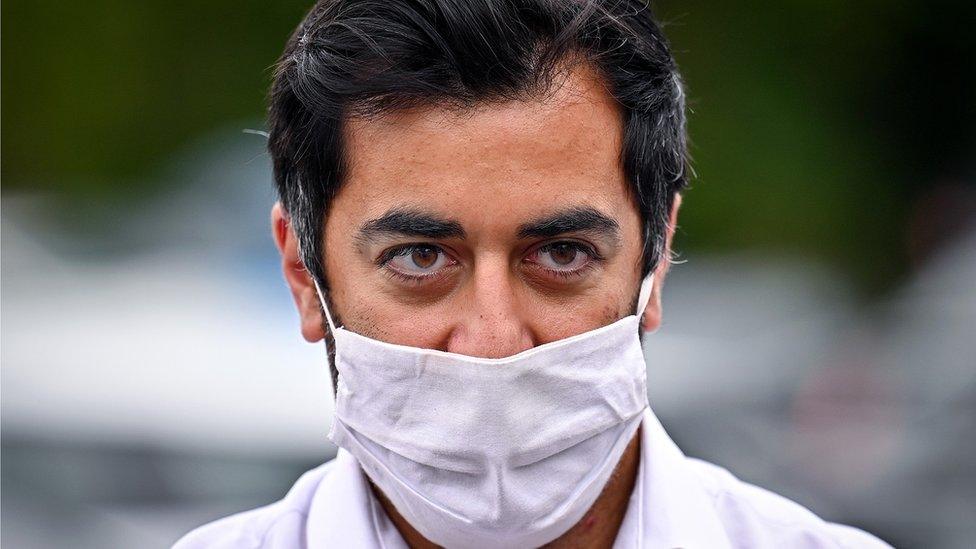
Humza Yousaf says there is cause for optimism that the rise in cases is not having a major impact on hospital admissions
Mr Yousaf told the BBC's Good Morning Scotland programme that while the impact of new variants on the NHS was still being assessed, it may be necessary to hold some areas back.
He said: "It may not be the entire country moving to level one.
"I think people would understand where there are rising case numbers, where there is rising test positivity... it may be the case that parts of the country move to level one but actually other parts of the country we decide to keep in level two."
Asked if he was referring to Glasgow, he replied: "Glasgow - but also, I must be quite frank, there are other parts from the data that continue to give us cause for concern."
The Scottish Conservatives called for a more targeted approach to tackle local outbreaks rather than impose restrictions on a whole council area or city.
Leader Douglas Ross said: "Leaving behind whole areas should be ruled out. Sweeping measures that unnecessarily hurt a whole city or council area are unfair on businesses and local people waiting to get on with their lives.
"Selectively imposing restrictions and targeting resources at smaller areas is entirely possible. The blanket council-wide approach is not the only plausible option."

Which areas have highest case rates?
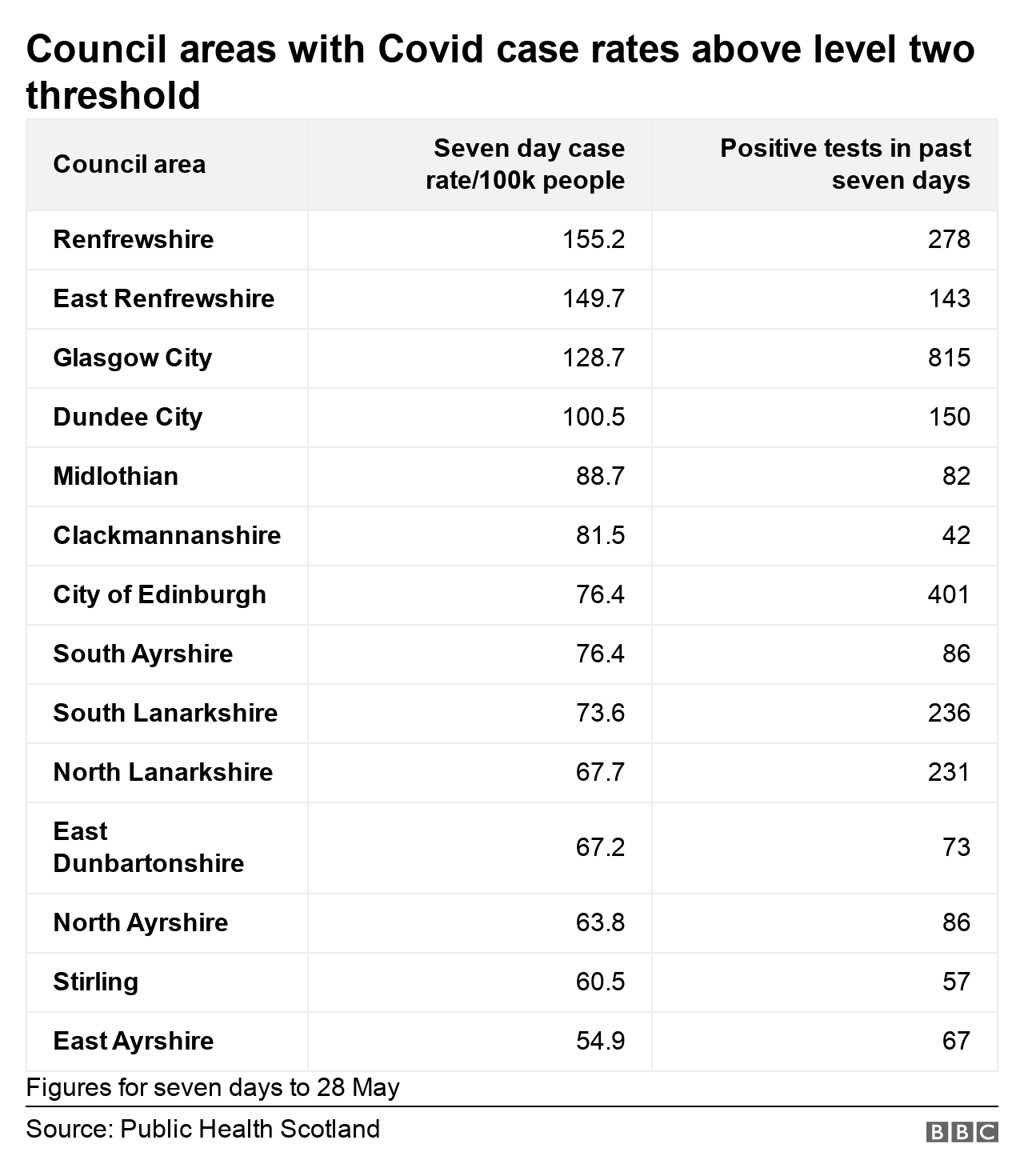
Renfrewshire and East Renfrewshire both currently have case rates higher than Glasgow.
Concern has recently been raised about rising infections in Dundee, which have increased from a very low level in a relatively short space of time.
A seven-day average case rate of 50 per 100,000 people has previously been seen as a threshold for a move to level two, but increasingly a range of indicators are taken into account such as the impact on hospital admissions or whether community transmission is widespread.
The actual number of cases has also guided decisions, such as when East Renfrewshire was allowed to move down to level two, despite a high case rate, because the actual numbers were still relatively low.
In the past seven days City of Edinburgh has seen 401 new cases, while South Lanarkshire has seen 236 positive tests and North Lanarkshire has seen 231.
Glasgow City continues to have the highest number of cases - 815 in the past week - but the numbers have fallen for four consecutive days.

Mr Yousaf said case rates were not the only "metrics" being considered in reaching decisions, with a focus on how the B.1.617.2 variant, first identified in India last year, was having an impact on hospital admissions and serious illness.
"We cannot give you an absolute definitive answer at this stage about what the effects are, but the signs are certainly optimistic that although case numbers are increasing, that doesn't necessarily translate into severe disease," he said.
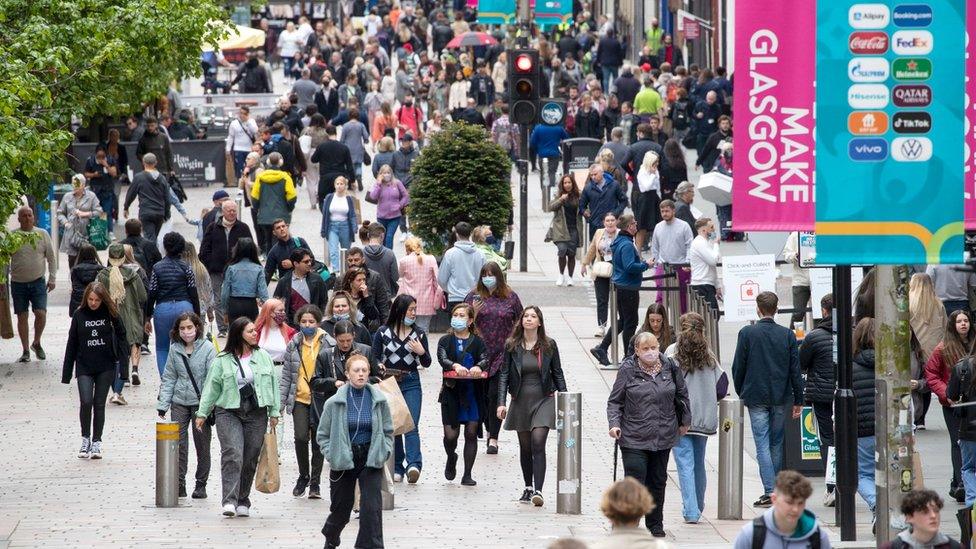
Vaccinations for 30 to 39-year-olds are due to start in the NHS Greater Glasgow health board area shortly, and younger people are also being offered vaccines in targeted postcodes.
The health secretary said figures for the end last week suggest the number of "did not attends" for vaccination appointments had fallen "drastically" after reports that as many as 50% had been missed the previous weekend.
First Minister Nicola Sturgeon has, meanwhile, praised an article by Edinburgh University professor Devi Sridhar in the Guardian, external, which argued that vaccination made Covid a "manageable" health issue by breaking "the link between cases, hospitalisation and deaths".
Ms Sturgeon tweeted that vaccination offered a way to manage Covid less restrictively, adding: "It's a transition as we complete vaccination, but this is the path I hope Scotland is on."
Allow X content?
This article contains content provided by X. We ask for your permission before anything is loaded, as they may be using cookies and other technologies. You may want to read X’s cookie policy, external and privacy policy, external before accepting. To view this content choose ‘accept and continue’.
In the latest daily update, the Scottish government said there had been 490 new cases of coronavirus detected, 4.2% of all tests, with one new death.
A total of 3,251,138 Scots have now received the first dose of a Covid-19 vaccine and 2,044,253 have received their second dose.
Mr Yousaf said he remained optimistic that plans to have 12,000 football fans at Hampden and a 6,000-capacity Euro 2020 fanzone in mid-June would go ahead.
"We have worked really, really closely not just with the football facilities but perhaps more importantly with our clinicians to says what is it we can do that is safe in the current context," he said.
"We know that outdoor transmission is a lot less likely and a lot less dangerous than for example people mixing indoors.
"Even with our sometimes not so great Scottish weather, UV light helps to kill off the virus in a way outdoors that it cannot do indoors."


Related topics
- Published30 May 2021
